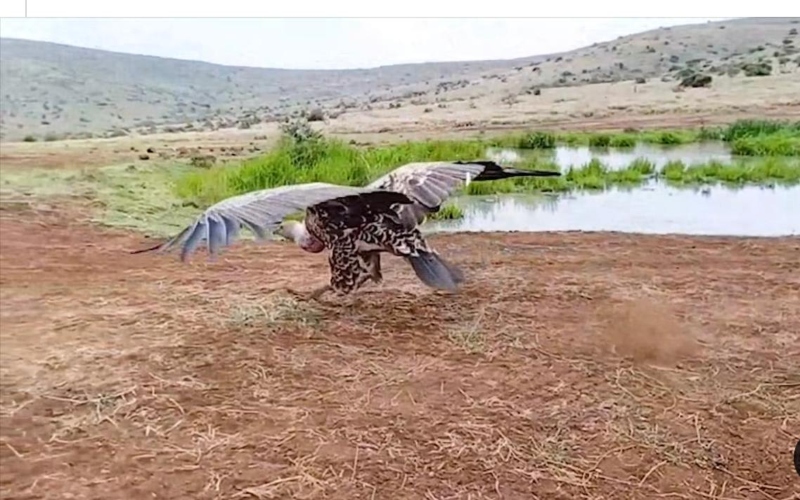Lewa, KWS launch vulture tracking project to boost raptor conservation

Two vultures - a white-backed vulture and a Rüppell's vulture - have been fitted with lightweight, solar-powered tracking tags designed to monitor their movements without affecting their natural behaviour.
Lewa Wildlife Conservancy, in partnership with the Kenya Wildlife Service (KWS) and The Peregrine Fund - Kenya, has launched a new scientific initiative to track endangered vultures across northern Kenya in a bid to strengthen raptor conservation.
As part of the initiative, two vultures - a white-backed vulture and a Rüppell's vulture - have been fitted with lightweight, solar-powered tracking tags designed to monitor their movements without affecting their natural behaviour.
More To Read
- Counties intensify pressure on national government over park revenue-sharing model
- Rescue mission launched to save Masai giraffes trapped by fences in Naivasha
- Rare eastern black rhino calf born in Chyulu Hills, boosting critically endangered population
- Conservationists demand probe into relocation of orphaned giraffes from Wajir to Nanyuki
- Wajir South MP condemns relocation of orphaned giraffes to Nanyuki
- KWS moves reticulated Somali giraffes from Wajir to Nanyuki in major conservation effort
According to Lewa Wildlife Conservancy, the tags are "light enough to go unnoticed by the birds, yet powerful enough to share their journeys from the sky", offering researchers real-time insights into how the species navigates the vast and often perilous northern Kenyan landscape.
Movement maps generated over the past week have traced the birds' flight paths, highlighting where they soar, feed and roost. Conservationists say the data is already shedding light on critical habitats that need protection.
"In every journey, these vultures are telling us where our conservation efforts matter most," said a representative from Lewa Wildlife Conservancy. "Their mapped movements point us to areas where threats like poisoning, habitat loss, collisions with powerlines and food scarcity remain persistent."
Dr Abdullahi Hussein, a conservationist and endangered species expert in Northern Kenya, welcomed the move, emphasising that the collaboration underscores the importance of science-driven conservation efforts.
"Every data point received deepens our understanding of the challenges facing Kenya's raptors," he said.
"This work allows stakeholders to take targeted action to protect species that are disappearing at alarming rates across Africa."
KWS also welcomed the initiative, noting that vulture declines pose broader ecological risk.
Lewa noted that beyond research, the project also aims to build local conservation capacity by equipping Kenyan scientists and wildlife managers with the tools and training needed to monitor raptor populations long-term.
"This partnership blends science, collaboration and a shared commitment to keep our skies alive," Lewa added.
The organisations hope that by understanding how vultures move and where they face the greatest danger, they can enhance protection measures for some of Africa's most threatened bird species.
Top Stories Today















































